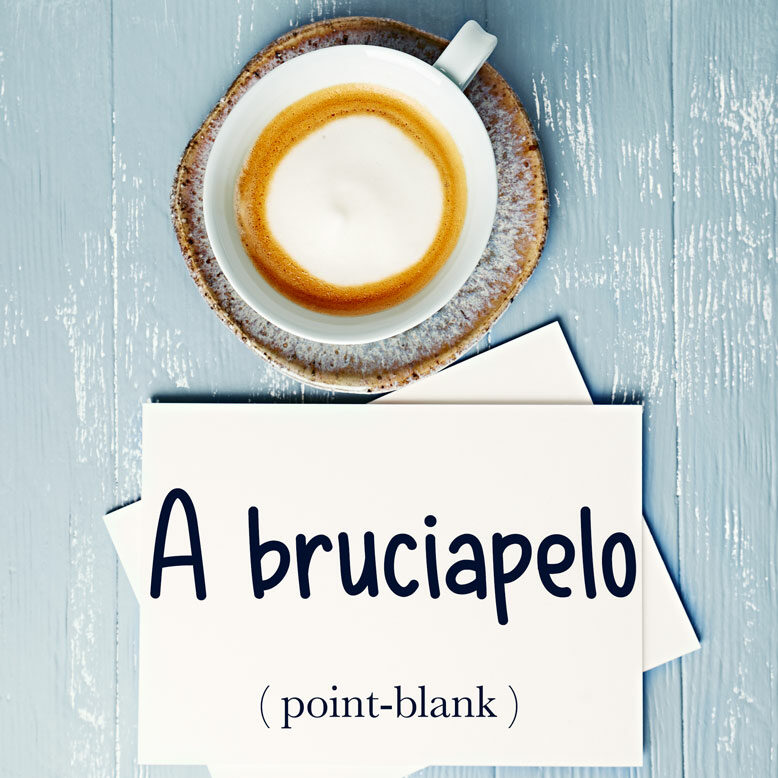The word bruciapelo (masculine, invariable) is mostly seen in the expression a bruciapelo which literally means point-blank or at point-blank range.

It is formed of two words: the verb bruciare (to burn) and the noun pelo (a single body hair). The idea is that if a gun is shot at very close range, it can burn the hair off the victim’s body.
Il criminale gli sparò a bruciapelo, uccidendolo.
The criminal shot him point-blank, killing him.

Quite often, however, a bruciapelo is used in a figurative sense when something is done or said out of the blue, catching the other person off guard. For example:
La mia ragazza mi chiese a bruciapelo se ero ancora felice con lei.
My girlfriend asked me point-blank if I was still happy with her.
Il presidente è abituato a ricevere domande fatte a bruciapelo.
The president is used to receiving pointed questions.
There is another use of the word bruciapelo, without the a in front, but it is a technical term that indicates a macchina bruciapelo, a machine that burns the down of cotton fabric.
Heather Broster is a graduate with honours in linguistics from the University of Western Ontario. She is an aspiring polyglot, proficient in English and Italian, as well as Japanese, Welsh, and French to varying degrees of fluency. Originally from Toronto, Heather has resided in various countries, notably Italy for a period of six years. Her primary focus lies in the fields of language acquisition, education, and bilingual instruction.


